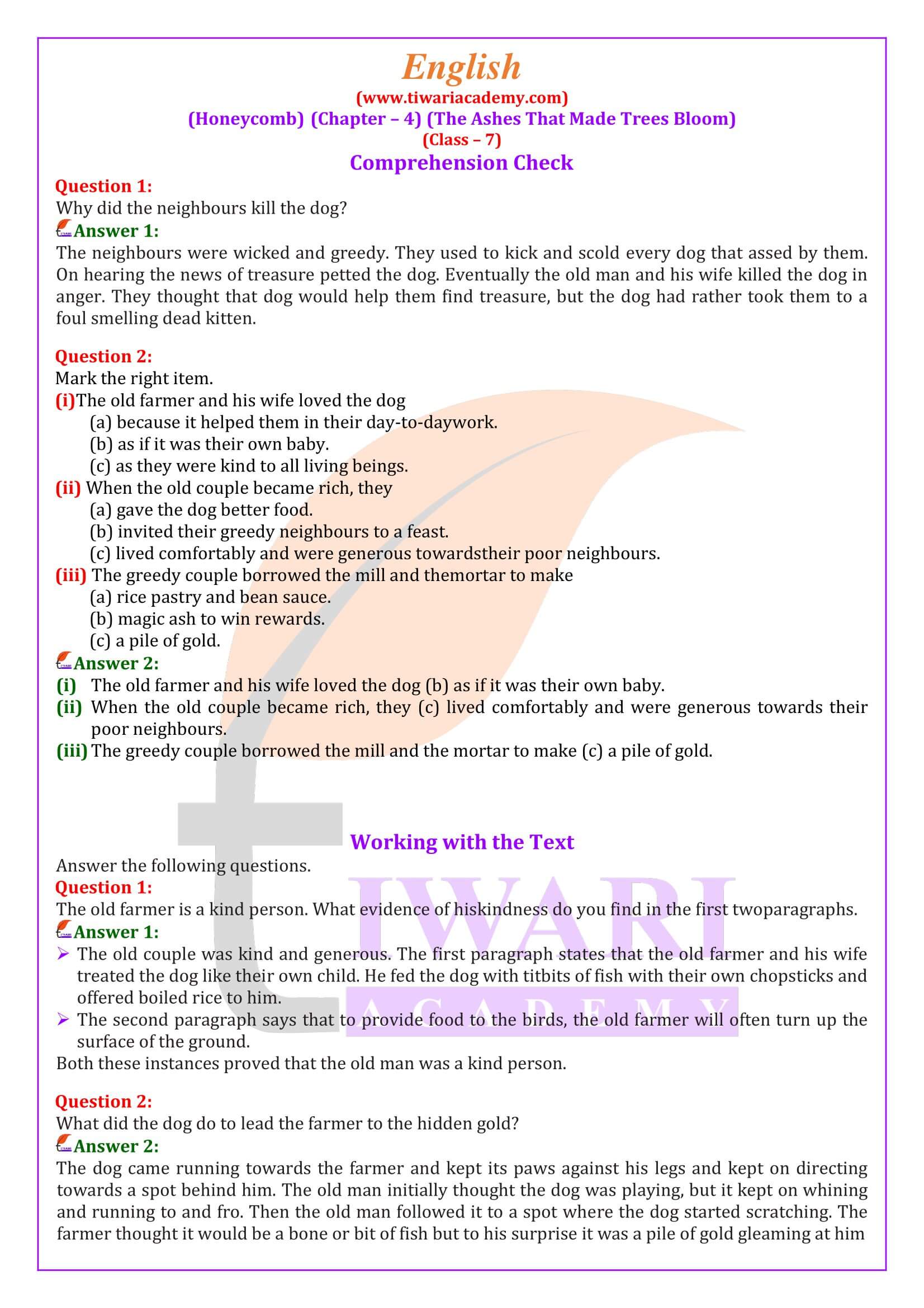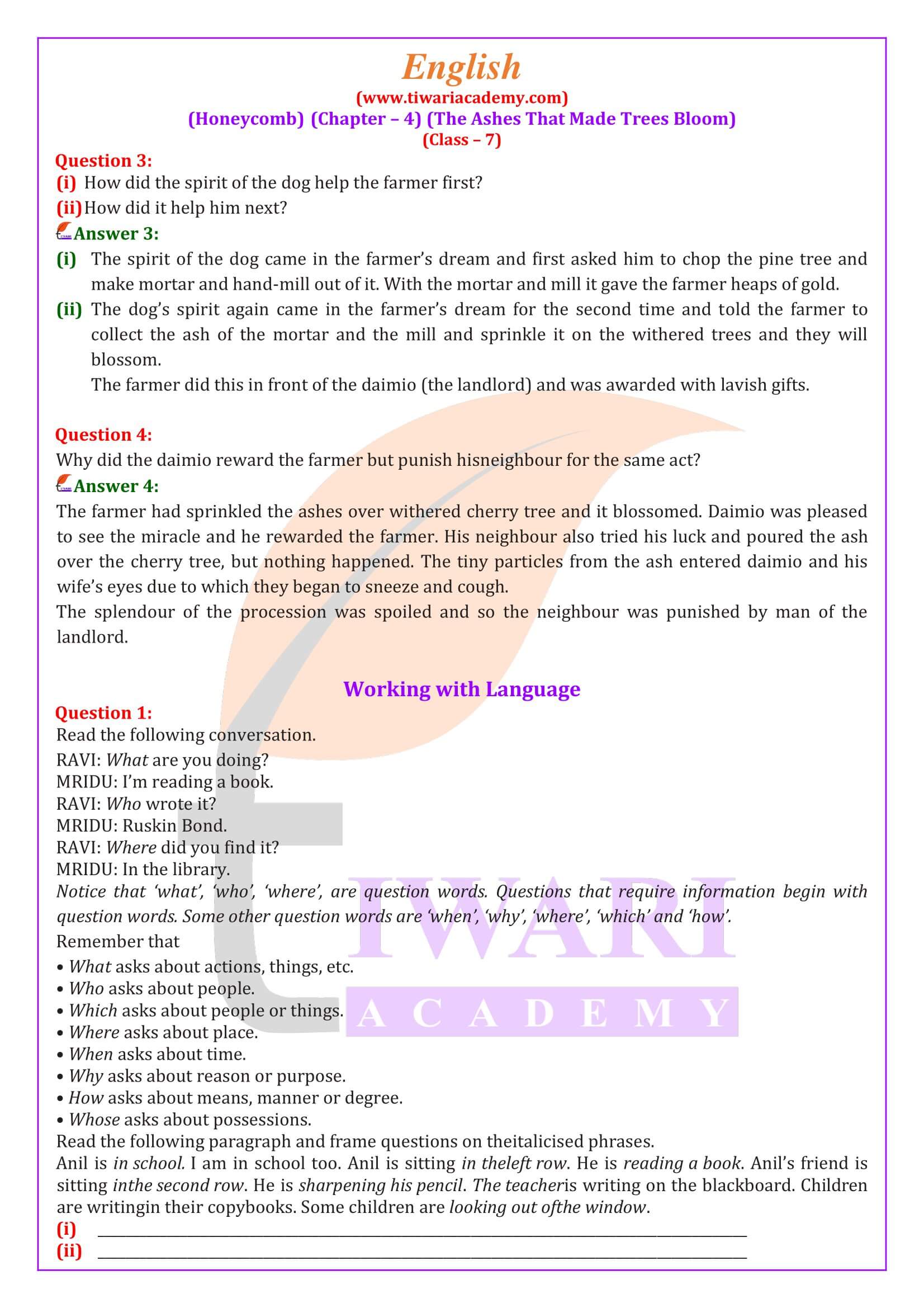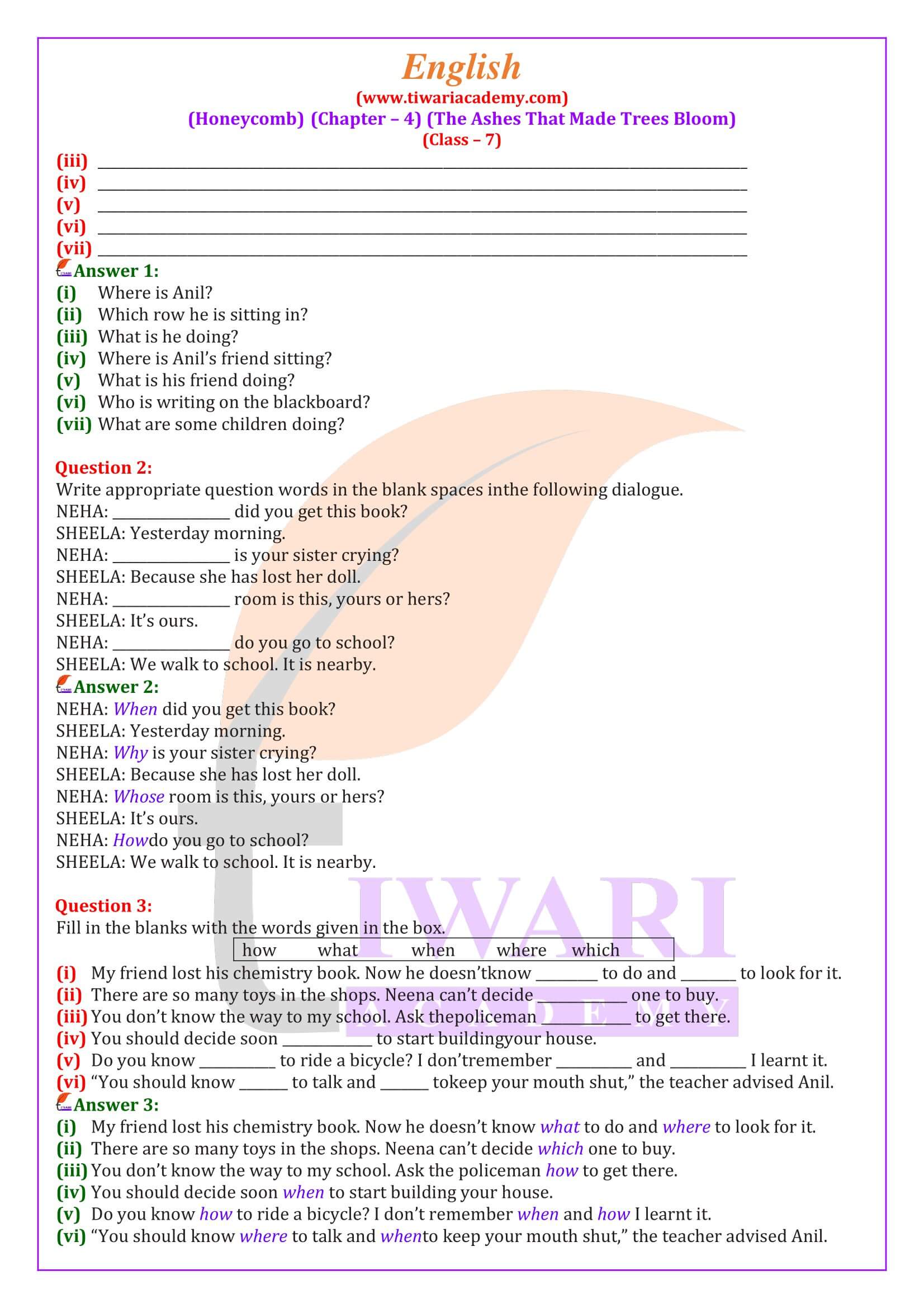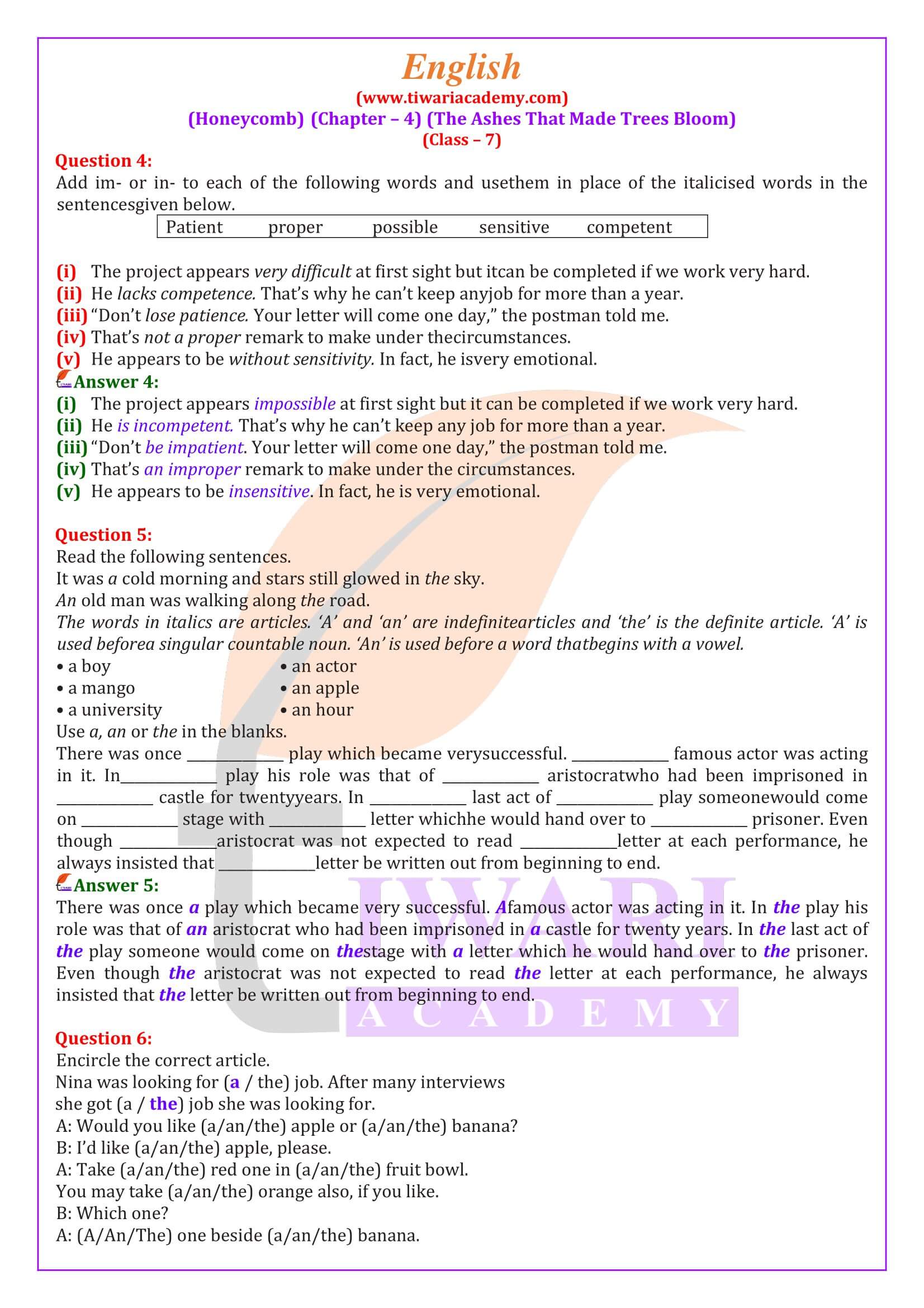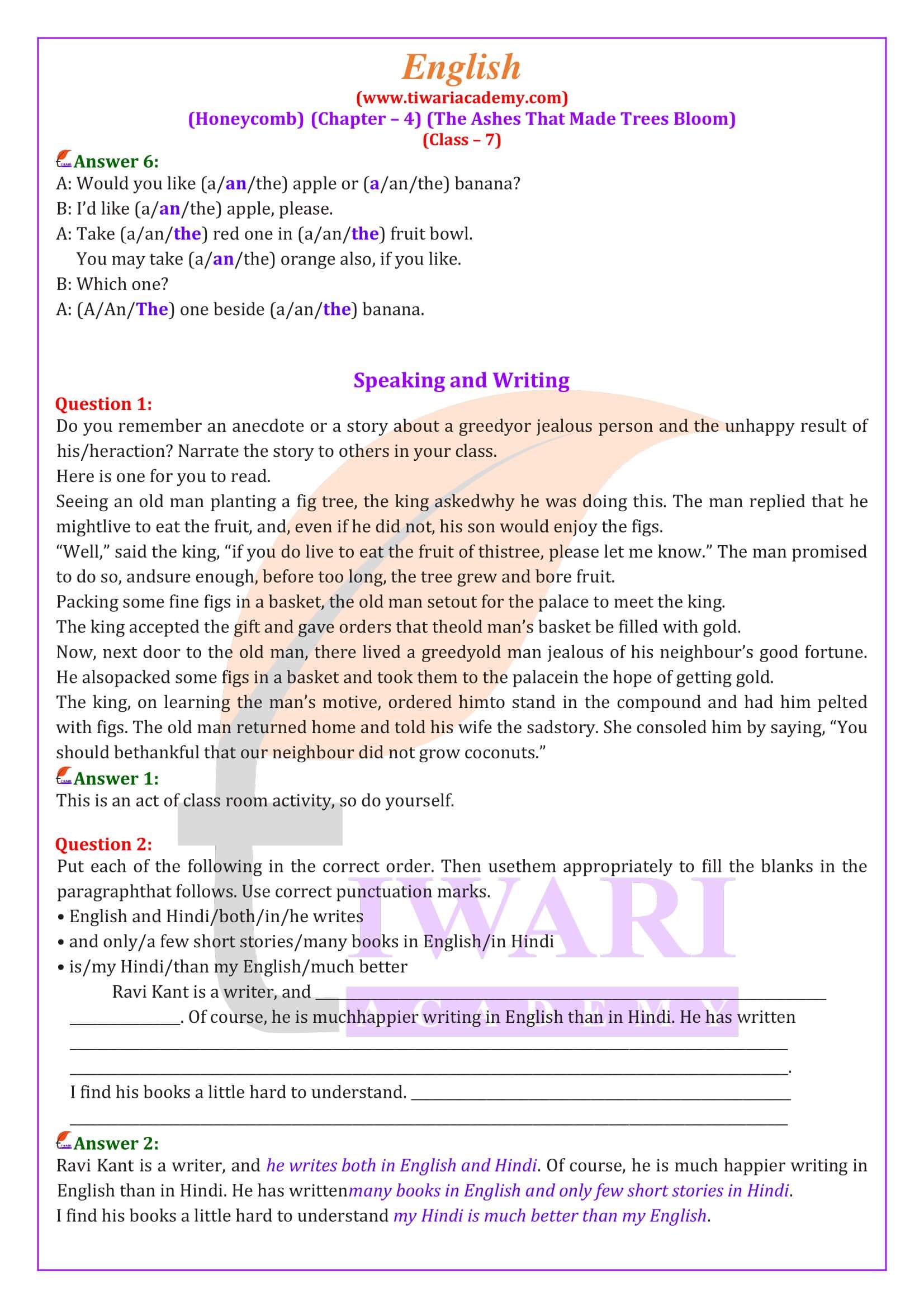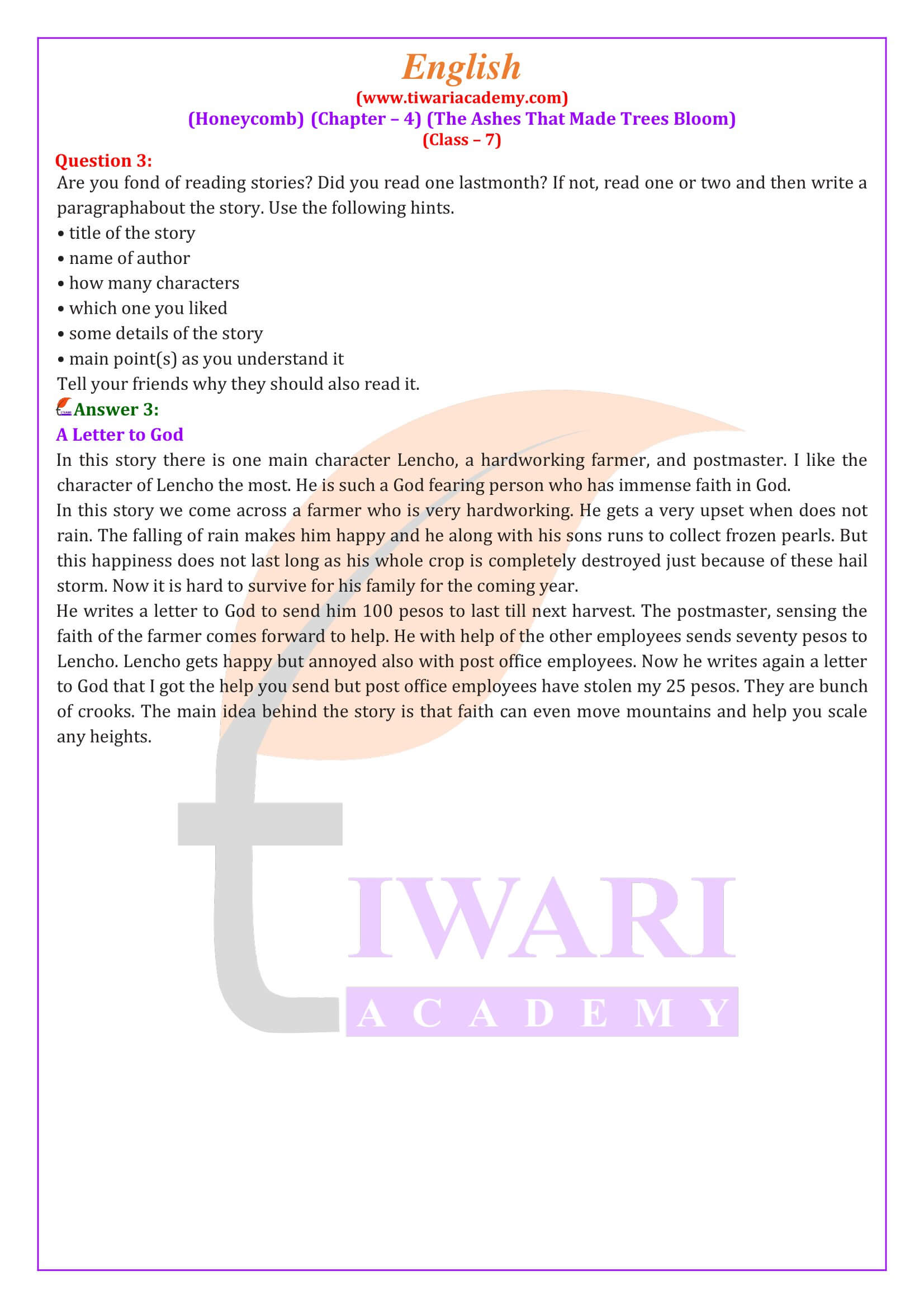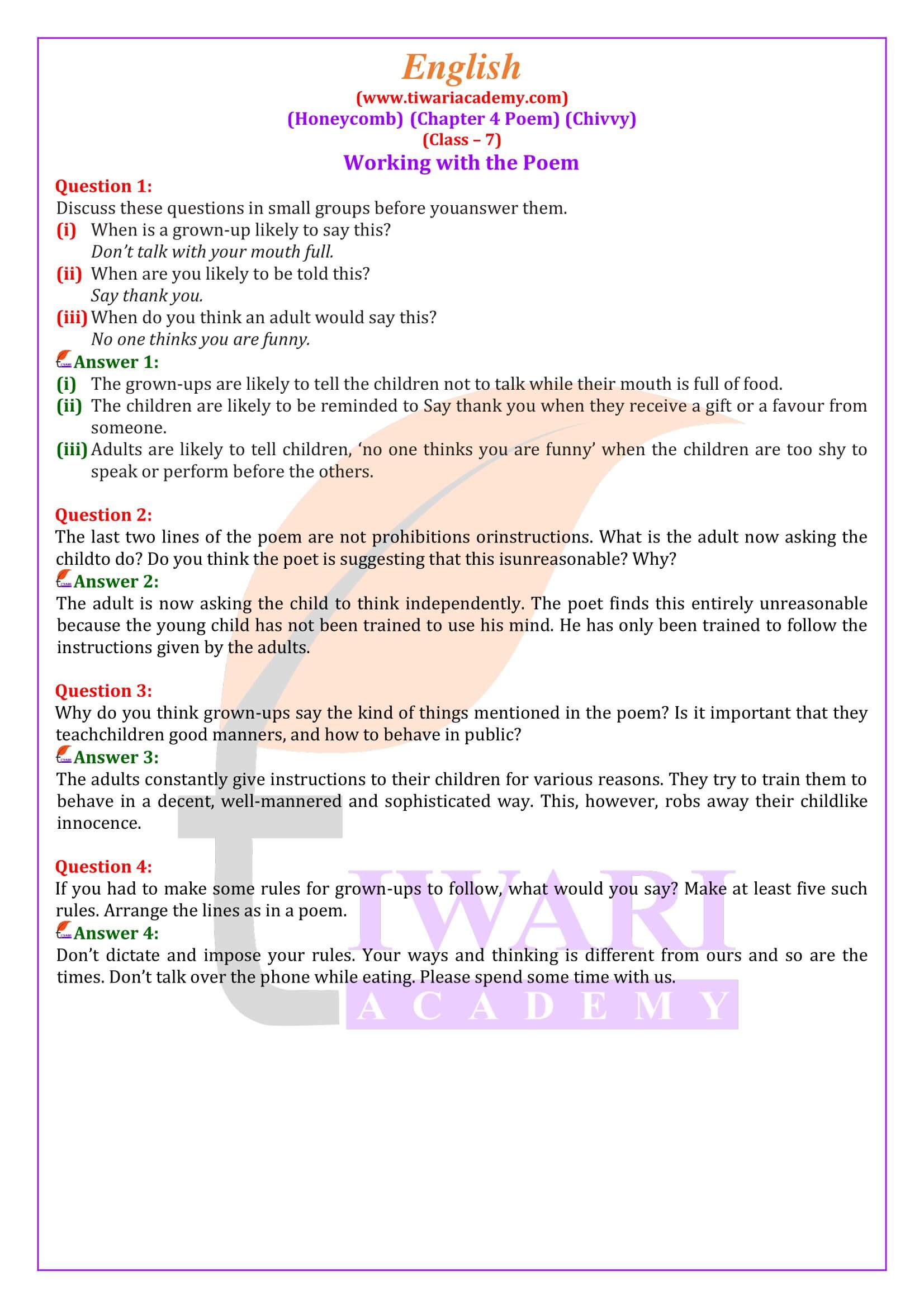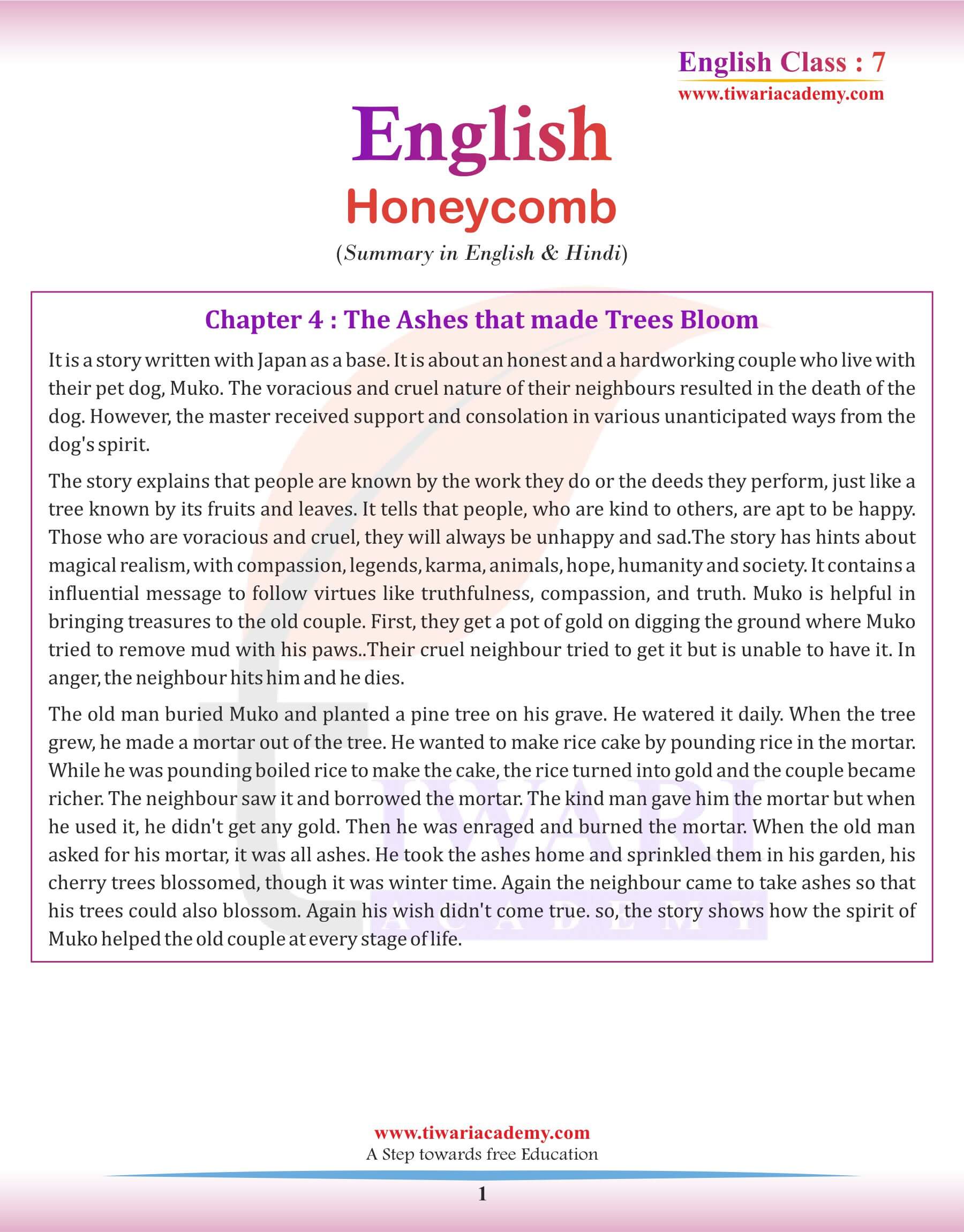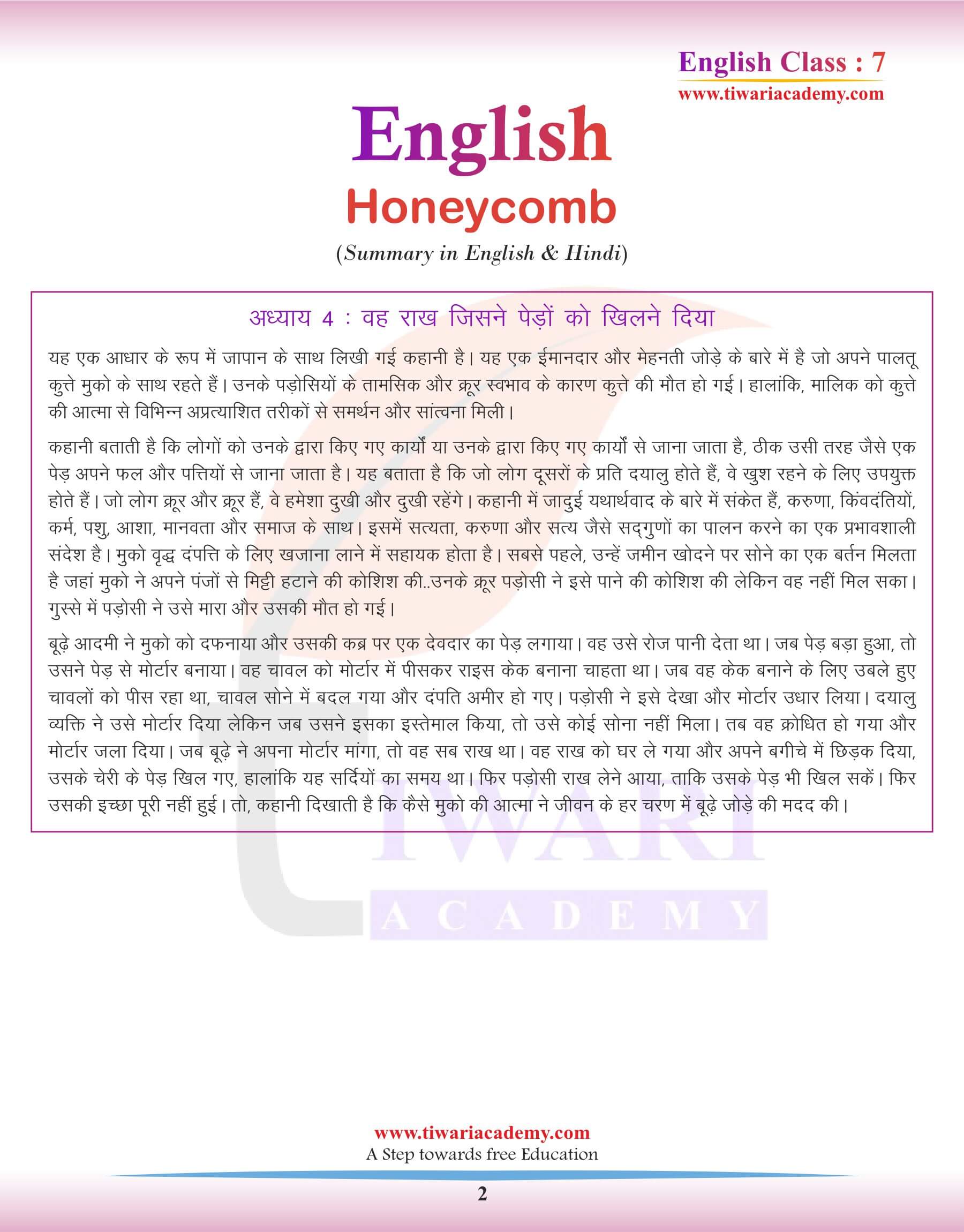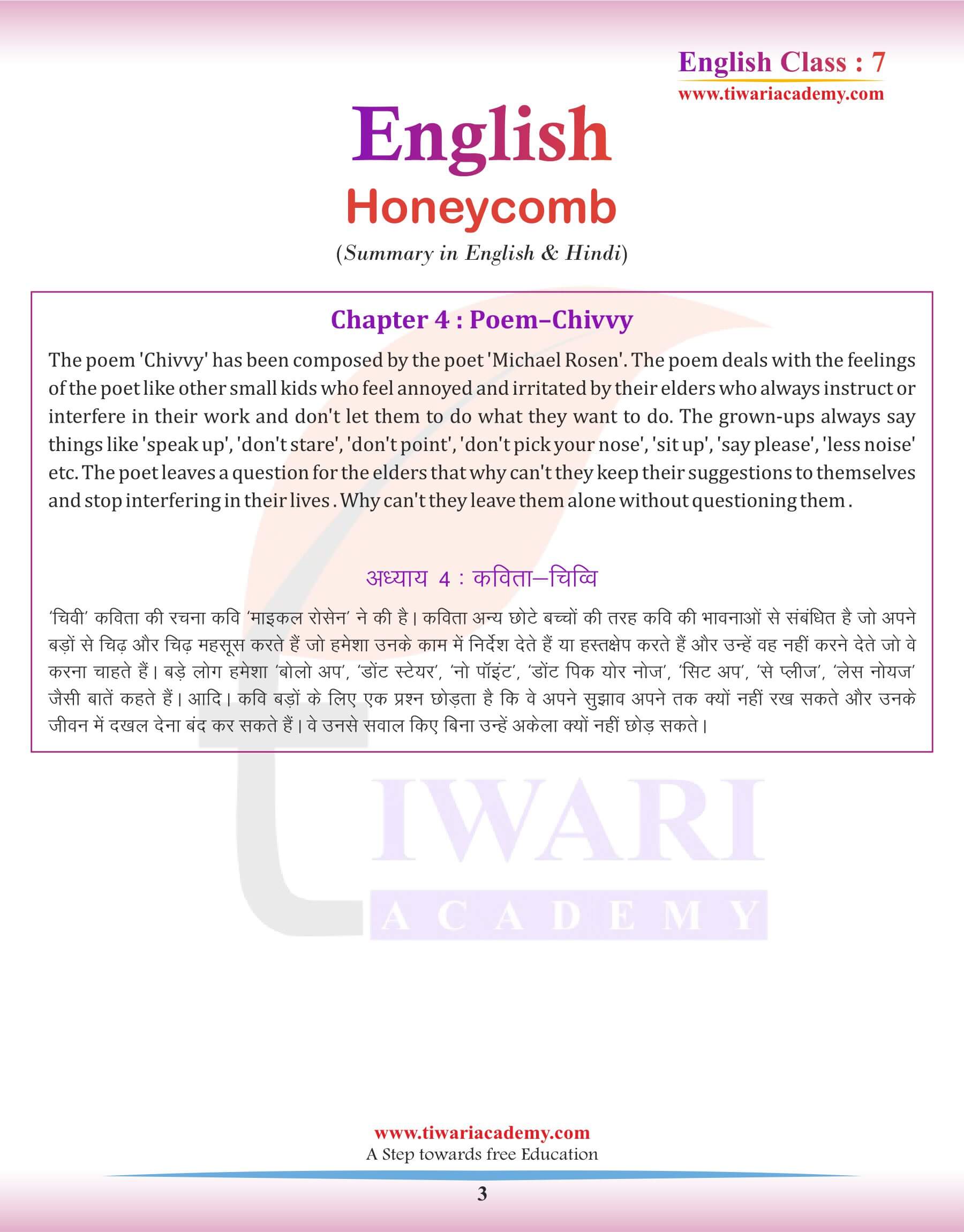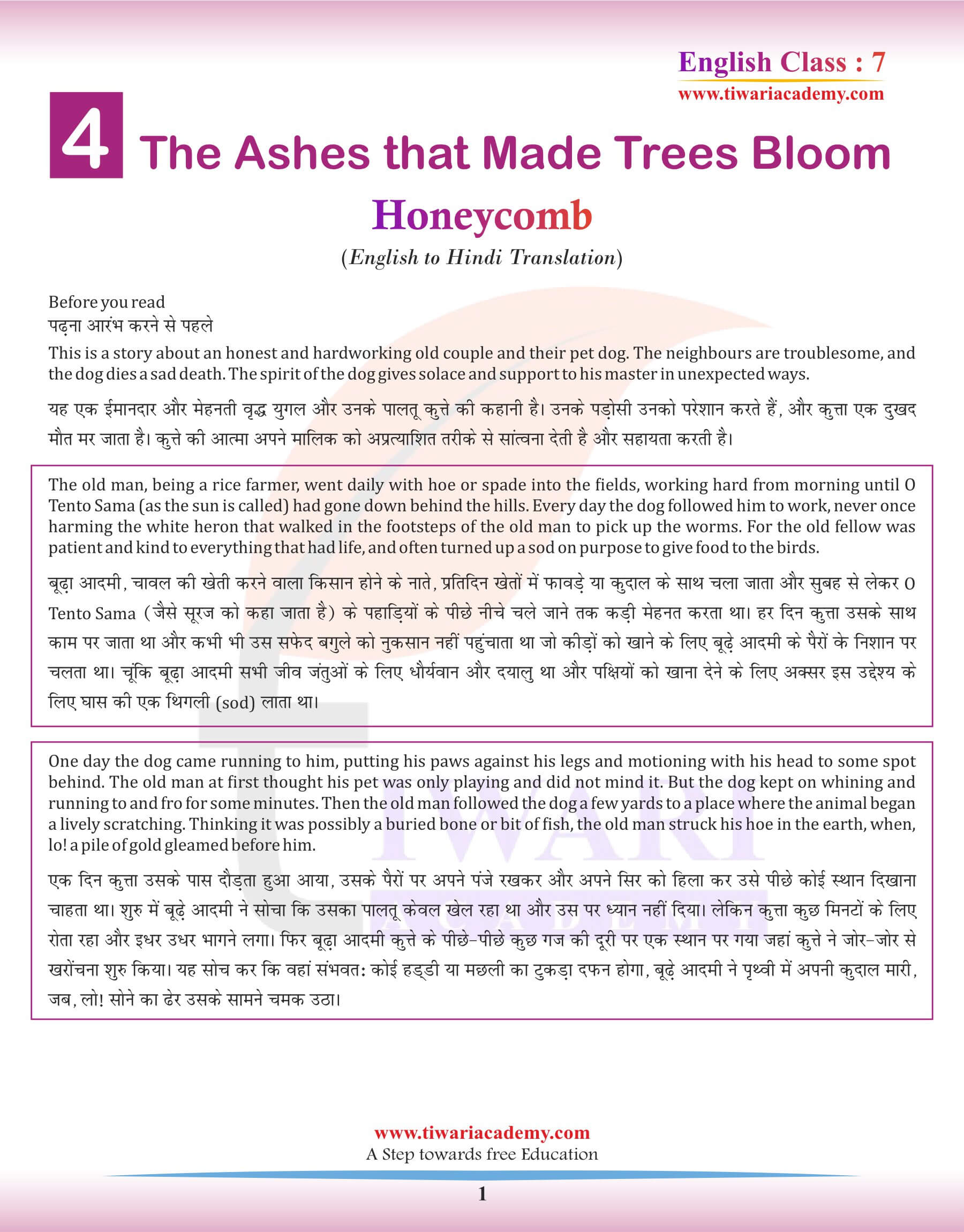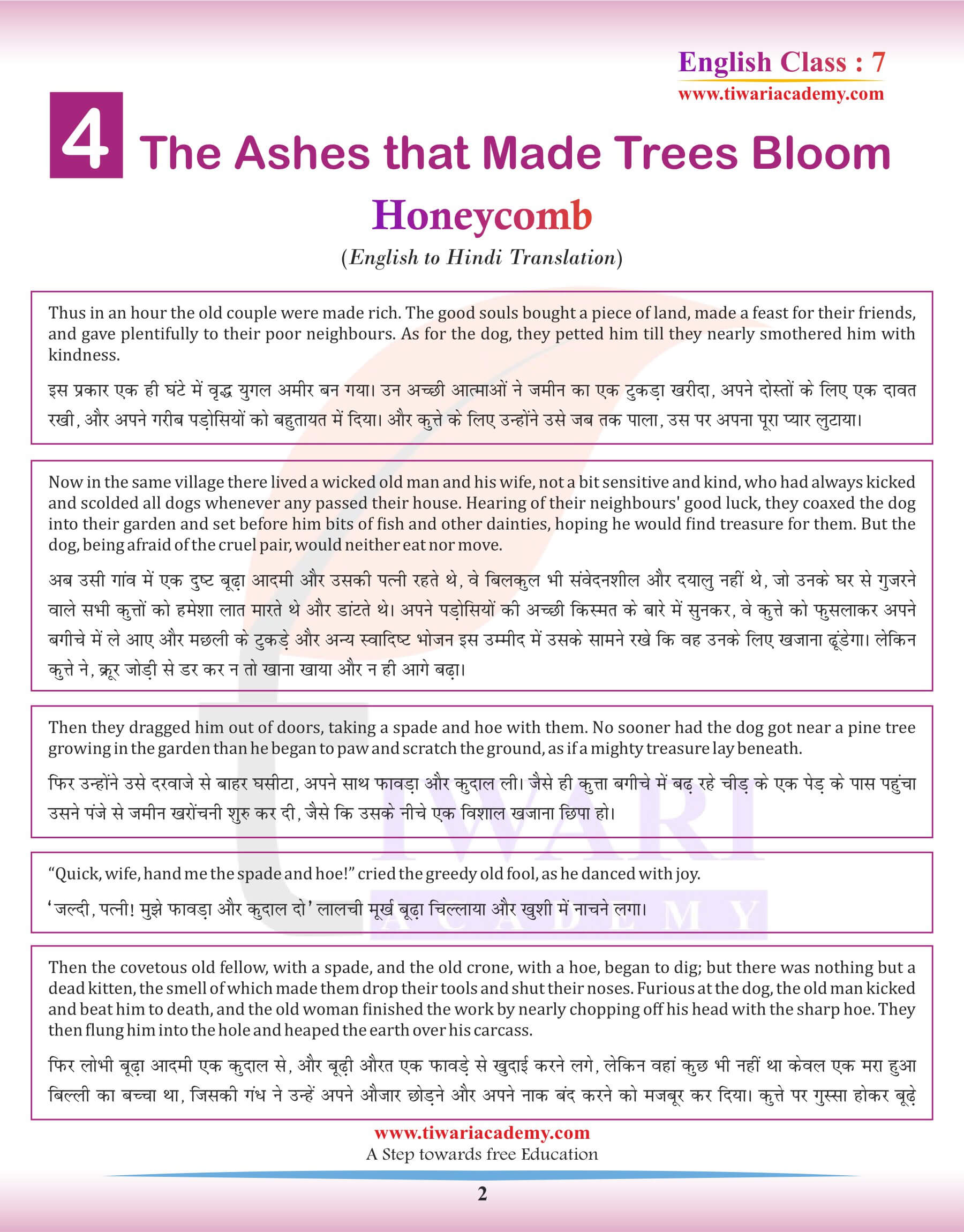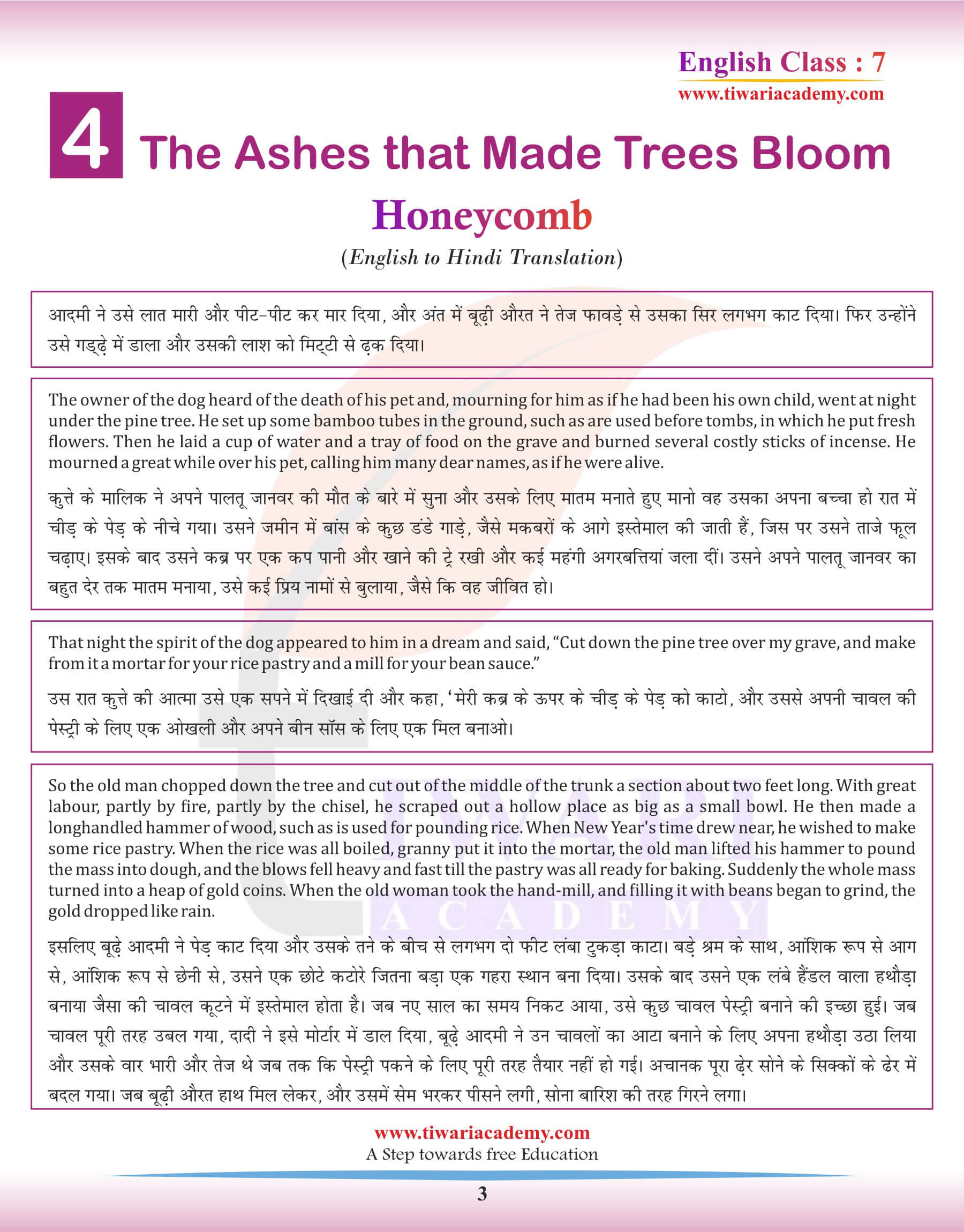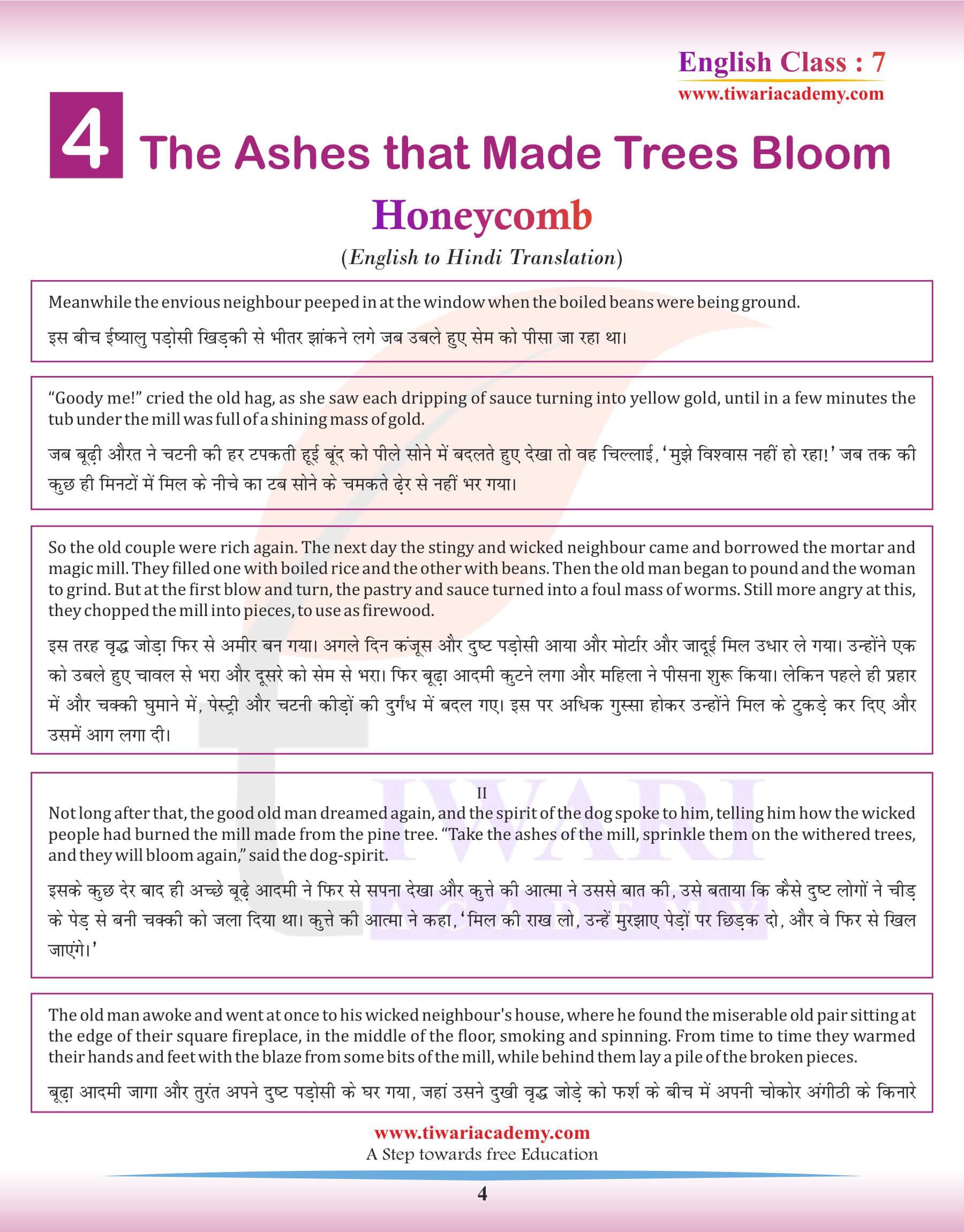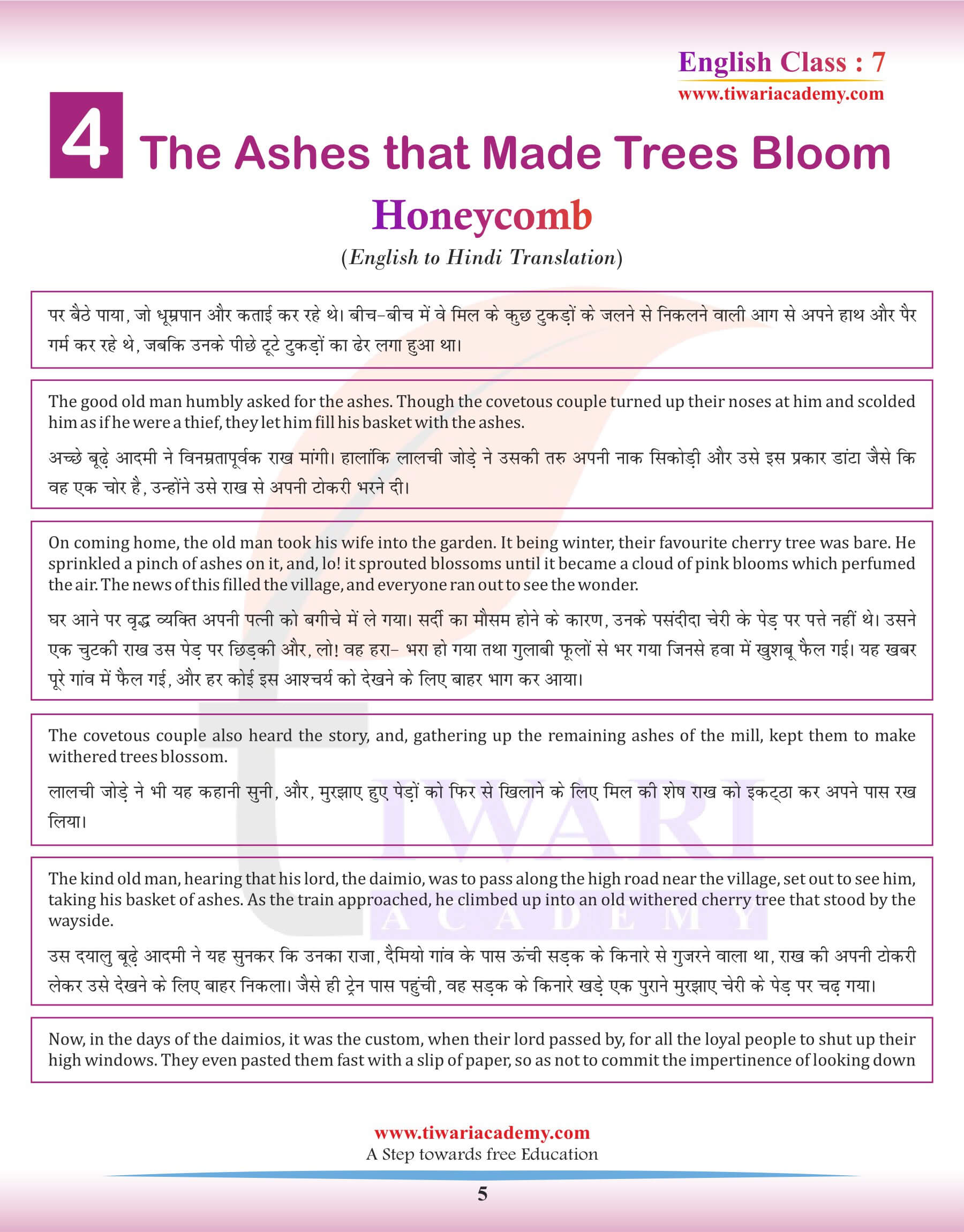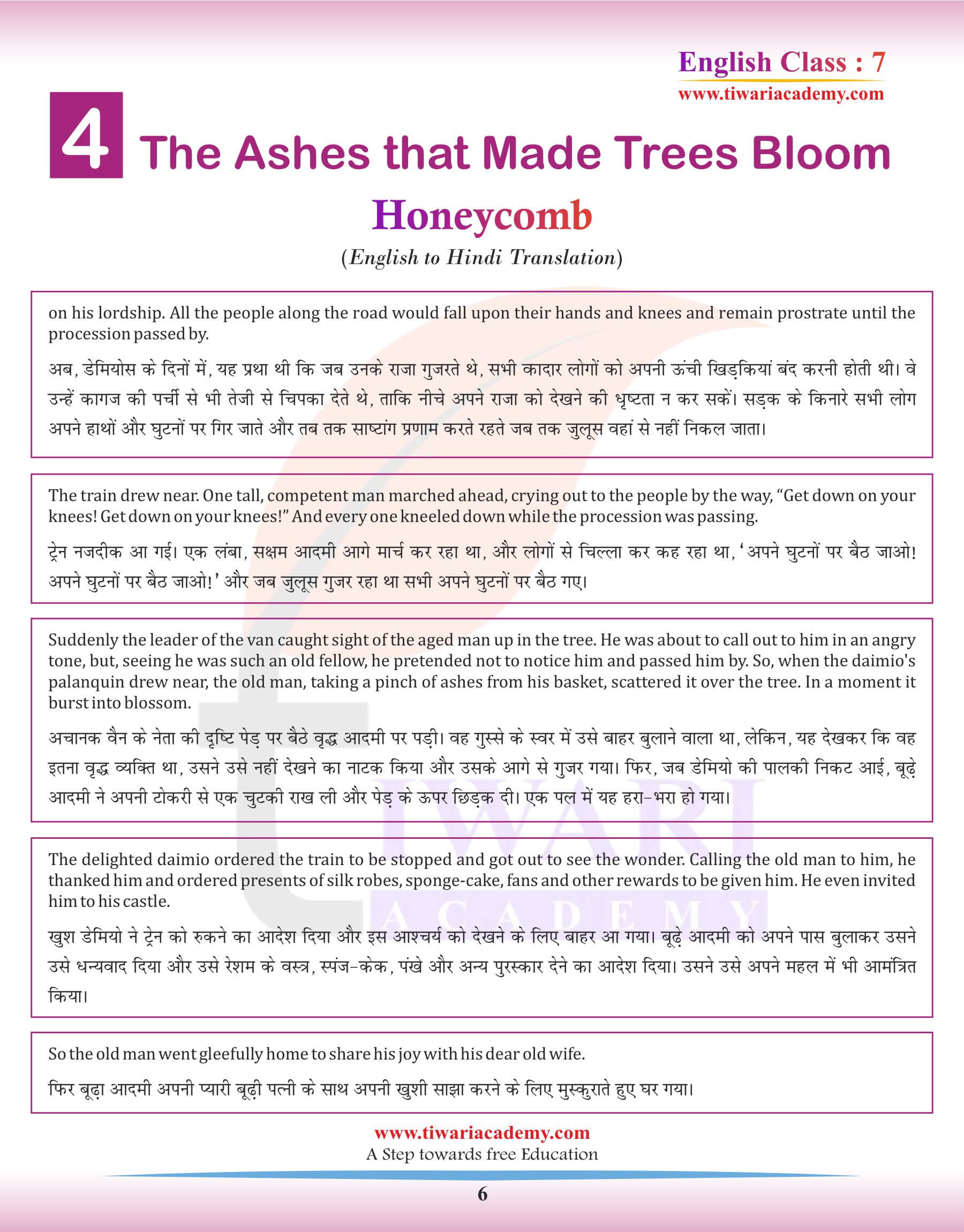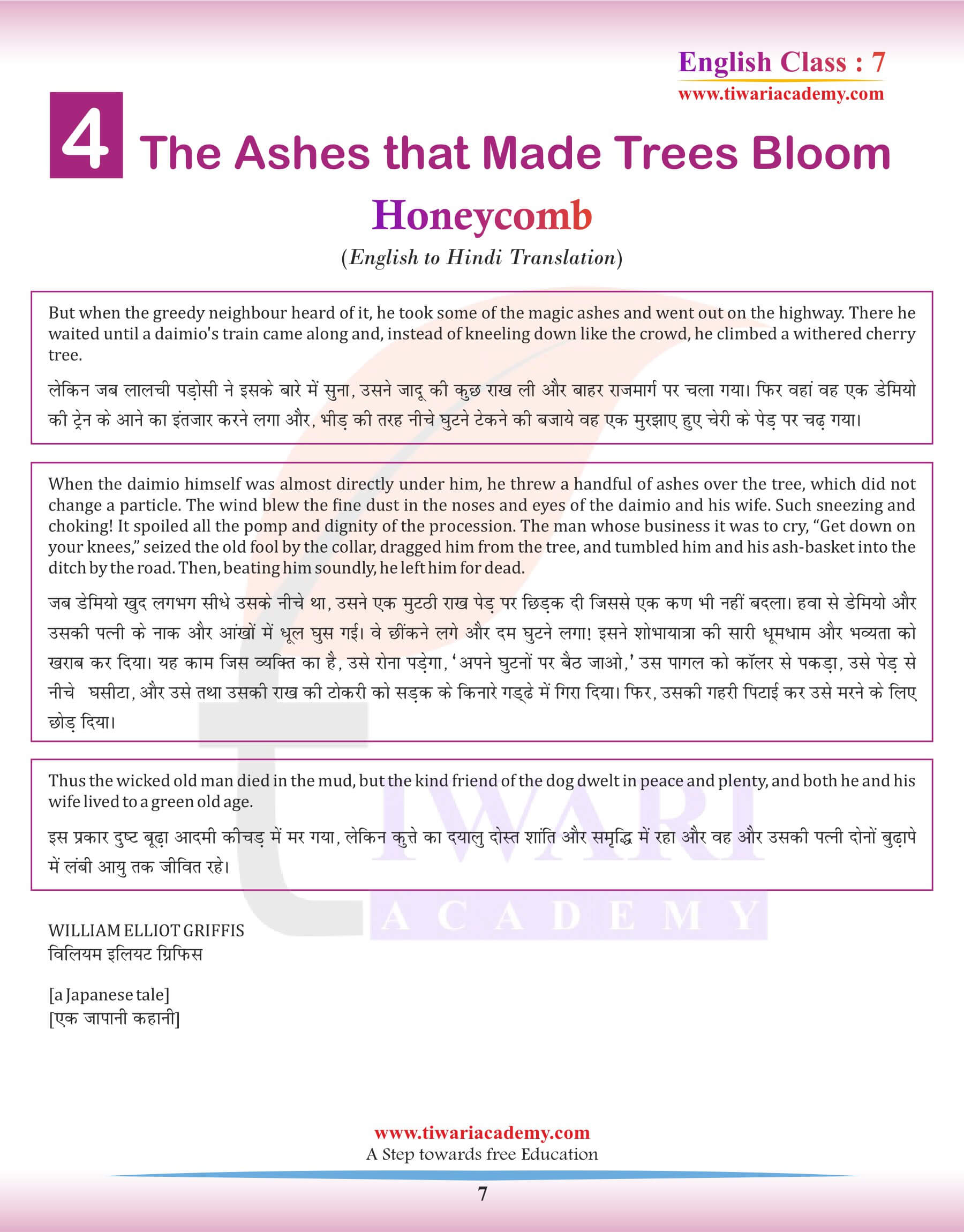NCERT Solutions for Class 7 English Honeycomb Chapter 4 The Ashes that Made Trees Bloom and Poem 4 Chivvy with Hindi Translation and Summary in Hindi as well as English Medium. The Solution is updated for new academic session 2025-26 based on rationalised NCERT Books. Class 7 English chapter 4 comprehension check, working with the text, working with language, speaking and writing skills all are included in the solutions.
NCERT Solutions for Class 7 English Honeycomb Chapter 4
Class 7 English Chapter 4 Question Answers
- Class 7 English Chapter 4 The Ashes that Made Trees Bloom
- Class 7 English Chapter 4 Poem 4 Chivvy
- Class 7 English Chapter 4 Summary in Hindi English
- Class 7 English Chapter 4 English to Hindi Translation
- Class 7 English Chapter 4 Important Questions
- Class 7 English Honeycomb Chapter 4 NCERT Book
- Class 7 English all Chapters NCERT Solutions
- Class 7 all Subjects NCERT Solutions
| Class: 7 | English |
| Textbook: | English Reader – Honeycomb |
| Chapter 4: | The Ashes that Made Trees Bloom |
| Contents: | Translation, Summary, Extra Questions Answers |
| Academic Session: | 2025-26 |
7 English Chapter 4 Question – Answers
Question – Answers of Class 7 English Reader book – Honeycomb Chapter 4 The Ashes that Made Trees Bloom and Poem 4 Chivvy are given below to use online or download free in PDF. NCERT Solutions and all NCERT Solutions Apps are updated for new academic session 2025-26.
Class 7 English Chapter 4 Passages for Comprehension
I. READ THE FOLLOWING PASSAGE AND ANSWER THE QUESTIONS THAT FOLLOWS:
So the old man chopped down the tree and cut out of the middle of the trunk a section about two feet long. With great labour, partly by fire, partly by the chisel, he scraped out a hollow place as big as a small bowl. He then made a longhandled hammer of wood, such as is used for pounding rice. When New Years’ time drew near, he wished to make some rice pastry.
Questions:
1. Which tree did the old man shop down?
2. How did the old man scrap out a hollow place?
3. What kind of hammer did he make?
II. READ THE FOLLOWING PASSAGE AND ANSWER THE QUESTIONS THAT FOLLOWS:
The owner of the dog heard of the death of his pet and, mourning for him as if he had been his own child, went at night under the pine tree. He set up some bamboo tubes in the ground, such as are used before tombs, in which he put fresh flowers. Then he laid a cup of water and a tray of food on the grave and burned several costly sticks of incense. He mourned a great while over his pet, calling him many dear names, as if he were alive.
Questions:
1. How did the owner of the dog prepare the grave for the dog?
2. What do you know about him from this?
3. Name the lesson and the author.
III. READ THE FOLLOWING PASSAGE AND ANSWER THE QUESTIONS THAT FOLLOWS:
The covetous couple also heard the story, and, gathering up the remaining ashes of the mill, kept them to make withered trees blossom.
The kind old man, hearing that his lord, the daimio, was to pass along the high road near the village, set out to see him, taking his basket of ashes. As the train approached, he climbed up into an old withered cherry tree that stood by the wayside.
Questions:
1. Which word in the passage means ‘greedy’?
2. What story did the covetous couple hear?
3. Name the lesson.
Class 7 English Honeycomb Chapter 4 – Important Questions
Why did the neighbours kill the dog?
The neighbours were wicked and greedy. They used to kick and scold every dog that assed by them. On hearing the news of treasure petted the dog. Eventually the old man and his wife killed the dog in anger. They thought that dog would help them find treasure, but the dog had rather took them to a foul smelling dead kitten.
The old farmer is a kind person. What evidence of his kindness do you find in the first two paragraphs.
The old couple was kind and generous. The first paragraph states that the old farmer and his wife treated the dog like their own child. He fed the dog with titbits of fish with their own chopsticks and offered boiled rice to him. The second paragraph says that to provide food to the birds, the old farmer will often turn up the surface of the ground. Both these instances proved that the old man was a kind person.
The dog came running towards the farmer and kept its paws against his legs and kept on directing towards a spot behind him. The old man initially thought the dog was playing, but it kept on whining and running to and fro. Then the old man followed it to a spot where the dog started scratching. The farmer thought it would be a bone or bit of fish but to his surprise it was a pile of gold gleaming at him.
How did the spirit of the dog help the farmer first?
The spirit of the dog came in the farmer’s dream and first asked him to chop the pine tree and make mortar and hand-mill out of it. With the mortar and mill it gave the farmer heaps of gold.
How did it help him next?
The dog’s spirit again came in the farmer’s dream for the second time and told the farmer to collect the ash of the mortar and the mill and sprinkle it on the withered trees and they will blossom. The farmer did this in front of the daimio (the landlord) and was awarded with lavish gifts.
Why did the daimio reward the farmer but punish his neighbour for the same act?
The farmer had sprinkled the ashes over withered cherry tree and it blossomed. Daimio was pleased to see the miracle and he rewarded the farmer. His neighbour also tried his luck and poured the ash over the cherry tree, but nothing happened. The tiny particles from the ash entered daimio and his wife’s eyes due to which they began to sneeze and cough. The splendour of the procession was spoiled and so the neighbour was punished by man of the landlord.
Why do you think grown-ups say the kind of things mentioned in the poem? Is it important that they teach children good manners, and how to behave in public?
The adults constantly give instructions to their children for various reasons. They try to train them to behave in a decent, well-mannered and sophisticated way. This, however, robs away their childlike innocence.
Class 7 English Chapter 4 Suggested Answers of Passages
Comprehension Passage I – Answers
1. The old man chopped down the pine tree over the grave of his pet dog.
2. The old man scrapped out a hollow place with great labour, partly by fire and partly by chisel.
3. He made a long handled hammer of wood, such as is used for pounding rice.
Comprehension Passage II – Answers
1. The owner of the dog set up some tubes in the ground such as are used for tombs in which he put fresh flowers. Then he laid a cup of water and a tray of food on the grave and burned several costly sticks of incense.
2. We know that he loved his dog very dearly as his own son.
3. The name of the lesson is ‘The Ashes that Made Trees Bloom’ and the author’s name is ‘William Elliot Griffis’.
Comprehension Passage III – Answers
1. The word ‘covetous’ in the passage means ‘greedy’.
2. The story they heard was that when the old farmer spread ashes on the bare cherry tree, it began to bloom.
3. The name of the lesson is ‘The Ashes that Made Trees Bloom’.
What is the moral of the story? Unit 4 chapter 1 from class 7th honeycomb.
I think the moral of the story is that the old couple always loved and care for the dog as the own child got the care and love from the dog in return even after the death of the dog. Prosperity and fame came to the kind people and the neighbors who were greedy and killed the dog ended up dead in the mud.
Do you think the story is long? Unit 4 chapter 1 from class 7th honeycomb?
I think the story was long due to all the important incidents was mentioned clearly and to help the children the story is divided into 2 parts.
Do you think the story can be covered in one day by students? Unit 4 chapter 1 from class 7th honeycomb?
I think the student may take time to complete the story because only reading is not the only motive of the story. Understanding it is the motive and maybe this why the story is been divided into two parts.
What do you think the poem is all about? Unit 4 chapter 2 from class 7th honeycomb?
I think the poem is about the parent’s guidance towards the child to make them well-mannered through a child’s perspective.
Why do you think the poet’s mother was stopping her from doing the aforementioned things? In the poem unit 4 chapter 2 from 7th honeycomb
I think the poet’s mother was asking to stop some of the things so that poet can become well-mannered as some of the thing mentioned above is not a good practice.
